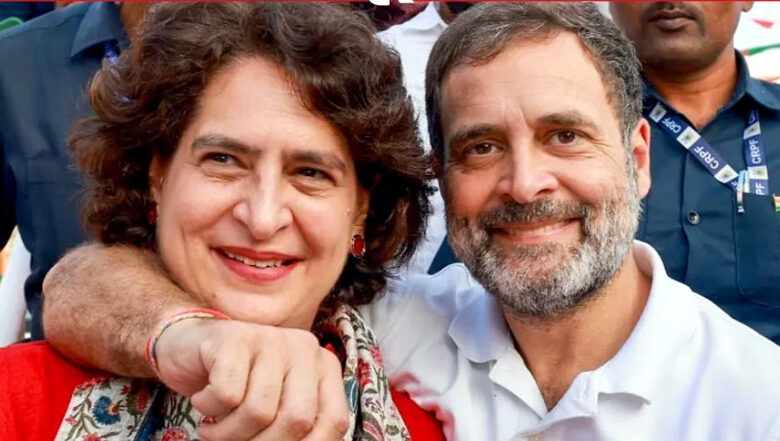Manoj Singh, ex ACS, UP Govt
Lucknow: The Indian Administrative Service (IAS) is more than a career; it is an identity. Entrusted with the immense power and responsibility of shaping India’s destiny, its officers are often placed on a pedestal. However, this very position of authority makes them uniquely vulnerable to sophisticated psychological traps. These are not signs of malice, but often unconscious defense mechanisms that can distort judgment, undermine leadership, and ultimately betray the sacred duty of public service.

By understanding these ego traps—Spiritual Bypass, Martyr Complex, Enlightened Narcissism, Intellectual Armor, and the Egoless Ego—we can better appreciate the inner battles that define a bureaucrat’s effectiveness.
1. The Technocrat & The Trap of Spiritual Bypass
The Officer: The post-ideological, data-driven officer. They believe governance is a purely technical problem, solvable through systems, flowcharts, and KPIs. They are often found in planning, finance, or smart-city roles.
The Trap Applied: This officer uses Spiritual Bypass not with spiritual jargon, but with the “religion of data.” Human suffering—displacement due to a project, the informal economy disrupted by a policy, cultural dissent—is not a tragic reality to be engaged with emotionally. It is merely “a variable in the model,” “an implementation hurdle,” or “a necessary externality for a larger GDP gain.”
They bypass the messy, human, and ethical dimensions of their work by retreating into the sterile comfort of spreadsheets. A plea from a community about to lose its livelihood is met not with empathy, but with a presentation on the project’s long-term economic benefits. The complex moral dilemma is spiritually bypassed by a faith in technocratic utopianism.
2. The Crusader & The Trap of the Martyr Complex
The Officer: The passionately committed, cause-driven officer. They are the anti-corruption warriors, the environmental champions, the officers known for taking on powerful lobbies.
The Trap Applied: Their initial zeal is commendable. But over time, it can curdle into a Martyr Complex. Their identity becomes solely defined by their struggle. They begin to relish the narrative of being the “only honest person in the room,” besieged by corrupt politicians and lazy colleagues. They speak constantly of their sacrifices—transfers, missed promotions, personal threats.
This complex is dangerous because it manipulates the team through guilt (“I am suffering for you, so you must be loyal”) and shuts out constructive feedback. Any dissent within their team is seen as a betrayal of the “sacred cause.” The mission, which started for the public good, subtly becomes a performance of their own righteousness and suffering.
3. The “Superstar” & The Trap of Enlightened Narcissism
The Officer: The charismatic, media-savvy officer who becomes a celebrity in their own right. They are prolific on social media, the subject of glowing profiles, and are seen as the “face” of a new, dynamic India.
The Trap Applied: This officer falls into Enlightened Narcissism. They don’t see themselves as egotistical; they see themselves as “visionaries.” Their confidence is not arrogance but a reflection of their “proven genius.” They surround themselves with sycophants who validate their every move. Policy successes are personal victories, while failures are blamed on the “system’s inability to keep up with their vision.”

They believe the rules are for lesser officers. Their grand projects, while sometimes beneficial, are ultimately monuments to their own legacy. They have transitioned from being a servant of the people to being a brand, and their administration becomes a cult of personality.
4. The Academic & The Trap of Intellectual Armor
The Officer: The brilliant, intellectually formidable officer. Often from top-tier colleges, they can quote Amartya Sen, reference the latest public policy paper from Harvard, and deconstruct any issue with breathtaking theoretical precision.
The Trap Applied: This officer uses their intellect as an Intellectual Armor. When faced with ground-level failures or criticism from less-educated stakeholders, they don a cloak of condescension. A villager’s practical problem is dismissed because the villager “doesn’t understand the larger policy framework.”
They win arguments but lose the people. In meetings, they use jargon and complex economic models not to enlighten, but to dominate and silence opposition. Their formidable intellect, instead of being a tool for problem-solving, becomes a fortress wall that protects them from the inconvenient, un-theorized realities of the citizens they are meant to serve.
5. The Ascetic & The Trap of the Egoless Ego
The Officer: The officer famed for their personal integrity and simplicity. They refuse official luxuries, lead a spartan life, and are seen as a modern-day karmayogi, working selflessly.
The Trap Applied: This is the most subtle and potent trap: the Egoless Ego. The officer’s performance of humility—cycling to work, having a humble office, refusing all gifts—becomes their central identity. The narrative of their “egolessness” is so powerful that it becomes a new form of ego.
Criticism cannot touch them, because how can you criticize a saint? Any challenge to their policy decisions is framed not as a professional disagreement, but as an attack on integrity itself. Their “humility” becomes a source of immense moral authority and power, making them immune to accountability. The ego, having identified with its own absence, becomes untouchable and absolute.
The Path of Conscious Leadership
Recognizing these traps is the first step toward transcending them. The finest IAS officers are not those who are immune to these patterns, but those who possess the self-awareness to spot them within themselves. They are the ones who can use data without losing compassion, fight for causes without becoming martyrs, wield authority without narcissism, apply intellect without arrogance, and practice humility without performance.
The true test of an IAS officer lies not just in managing a district or a ministry, but in managing the ego—the ultimate, and most important, project of their career.









